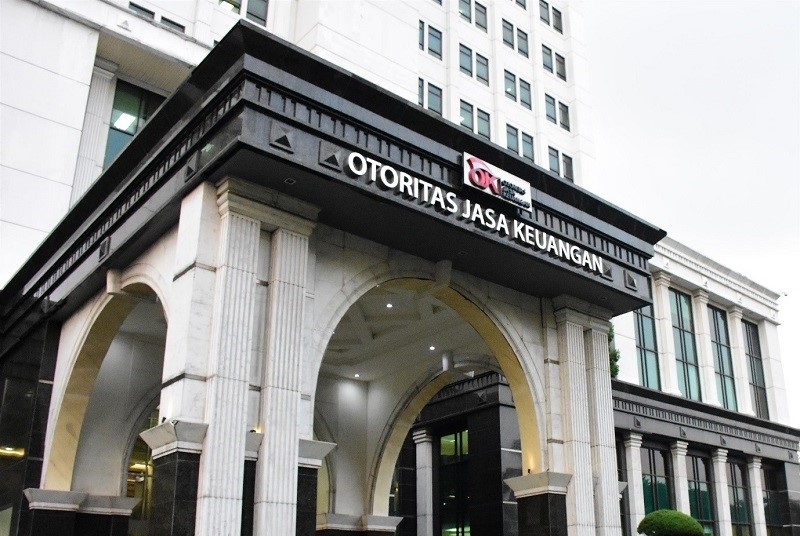The Indonesian Financial Services Authority (OJK) has projected a steady outlook for the national banking sector in 2025, despite a slowdown in credit growth. This projection reflects confidence in the sector’s resilience, with profitability, asset quality, and capitalization expected to remain strong even as lending activities decelerate.
The global and domestic financial landscape has created both challenges and opportunities for Indonesian banks. With inflationary pressures easing, interest rates gradually stabilizing, and digital transformation advancing across the financial system, banks are entering a new phase that prioritizes sustainable growth rather than aggressive lending.
Credit Growth Slows But Remains Positive
OJK forecasts that credit growth in 2025 will decelerate compared to previous years. After recording double-digit expansion in several periods following the COVID-19 pandemic recovery, lending is now projected to grow at a more modest pace of around 8 to 9 percent.
Several factors are driving this moderation. First, corporate demand for credit is showing signs of normalization after years of post-pandemic expansion. Many large companies have secured financing earlier for capital expenditures, leaving fewer new projects requiring large-scale loans in the near term.
Second, households are becoming more cautious about borrowing amid a changing macroeconomic environment. Rising living costs, though expected to stabilize in 2025, have reduced consumer appetite for new debt. Mortgage growth remains steady, but unsecured consumer credit has slowed significantly.
Despite this moderation, OJK emphasizes that the slowdown does not represent weakness. Instead, it reflects a healthier balance between credit expansion and risk management. Banks are focusing more on improving loan quality, ensuring that lending practices remain prudent, and avoiding excessive exposure to high-risk sectors.
Banking Sector Profitability Remains Robust
Even with slower credit expansion, profitability in the Indonesian banking sector is expected to remain solid in 2025. Banks have benefited from a favorable interest margin environment, as lending rates remain higher than deposit rates. While the spread between the two is narrowing slightly, net interest margins are still above pre-pandemic averages.
Moreover, efficiency gains through digitalization are strengthening banks’ bottom lines. The rapid adoption of mobile banking, digital payments, and online credit applications has reduced operational costs while enhancing customer reach. These digital channels have also improved transparency and data analysis, allowing banks to manage risks more effectively.
The OJK projects that return on assets (ROA) and return on equity (ROE) will remain stable in 2025, supported by steady income growth and disciplined cost management. Non-performing loan (NPL) ratios are also expected to stay within safe thresholds, reflecting strong risk governance practices.
Capitalization and Liquidity Stay Strong
Another key pillar of stability is the robust capitalization of Indonesian banks. OJK highlights that the capital adequacy ratio (CAR) of the industry remains well above regulatory minimums, providing a strong buffer against potential shocks.
Liquidity is also ample, with loan-to-deposit ratios (LDR) maintained at manageable levels. This ensures that banks have sufficient capacity to meet withdrawal demands and continue financing economic activities. The stable liquidity environment also gives banks room to adjust lending strategies in response to market dynamics.
Additionally, the sector’s exposure to foreign exchange risks remains limited. With a majority of funding sourced domestically and a diversified asset base, banks are less vulnerable to global volatility. This reinforces OJK’s view that the sector is well-positioned to handle uncertainties in 2025.
Role of Digital Transformation in Banking Outlook
Digitalization is a central theme shaping the Indonesian banking outlook in 2025. The industry has witnessed a surge in digital banking adoption, driven by changing customer preferences and supportive regulatory frameworks.
OJK has introduced several measures to strengthen cybersecurity, data protection, and digital financial literacy. These initiatives aim to ensure that digital banking continues to expand without compromising system integrity. Banks, meanwhile, are investing heavily in artificial intelligence, blockchain solutions, and advanced analytics to improve credit scoring, fraud detection, and personalized financial services.
This digital transformation is not only enhancing efficiency but also enabling financial inclusion. Millions of unbanked and underbanked Indonesians are now gaining access to financial services through mobile platforms, expanding the potential customer base for banks and supporting broader economic growth.
Risks and Challenges Ahead
While the outlook remains positive, OJK also acknowledges several risks that could affect the banking sector in 2025. Global economic uncertainties, including geopolitical tensions, commodity price fluctuations, and potential monetary policy shifts in advanced economies, could influence capital flows and investor sentiment.
Domestically, challenges include ensuring that credit expansion supports productive sectors such as manufacturing, infrastructure, and small and medium enterprises (SMEs). OJK emphasizes the need for banks to channel funds toward long-term growth drivers rather than short-term consumption.
Cybersecurity risks are another area of concern, given the rapid digitalization of financial services. Ensuring robust security measures and maintaining customer trust will be crucial for sustaining momentum in the sector.
Outlook for 2025 and Beyond
Overall, OJK’s projection of a stable Indonesian banking outlook in 2025 signals resilience in the face of global and domestic headwinds. With strong capitalization, healthy profitability, and ongoing digital transformation, the sector is well-prepared to navigate a period of slower credit growth.
The emphasis on quality over quantity in lending is expected to strengthen the industry’s long-term foundation. By maintaining prudent risk management and aligning credit expansion with strategic economic priorities, Indonesian banks are positioning themselves for sustainable growth beyond 2025.
For stakeholders, including investors, regulators, and consumers, this outlook provides reassurance that the sector remains a reliable backbone of the economy. As OJK continues to guide the industry with a balanced approach, the Indonesian banking system is likely to remain resilient and adaptive in the years ahead.
Read More






 Friday, 27-02-26
Friday, 27-02-26







